Categories(658 Blogs)
Select Category
Watch Right Now
Teacher App - Class
Schedule & Attendance Management App
Parent App from Edsys

Best School Bus Tracking System

Cashless School - For Smart Schools of Tomorrow


55 Best National Parks in India
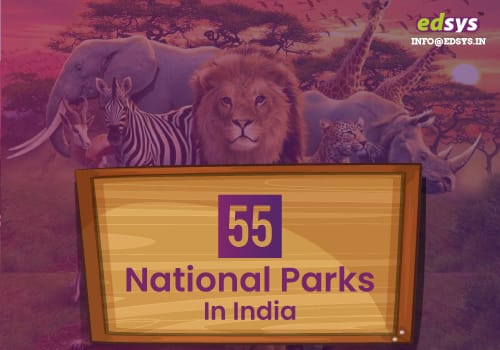
A park, which is officially recognized by the country to protect the flora and fauna, to give the future generations an unimpaired visual treat of nature, is known as a National Park. Indians are fortunate enough to have a lot of National Parks. Here are some of the important national parks in India.
1. JIM CORBETT NATIONAL PARK
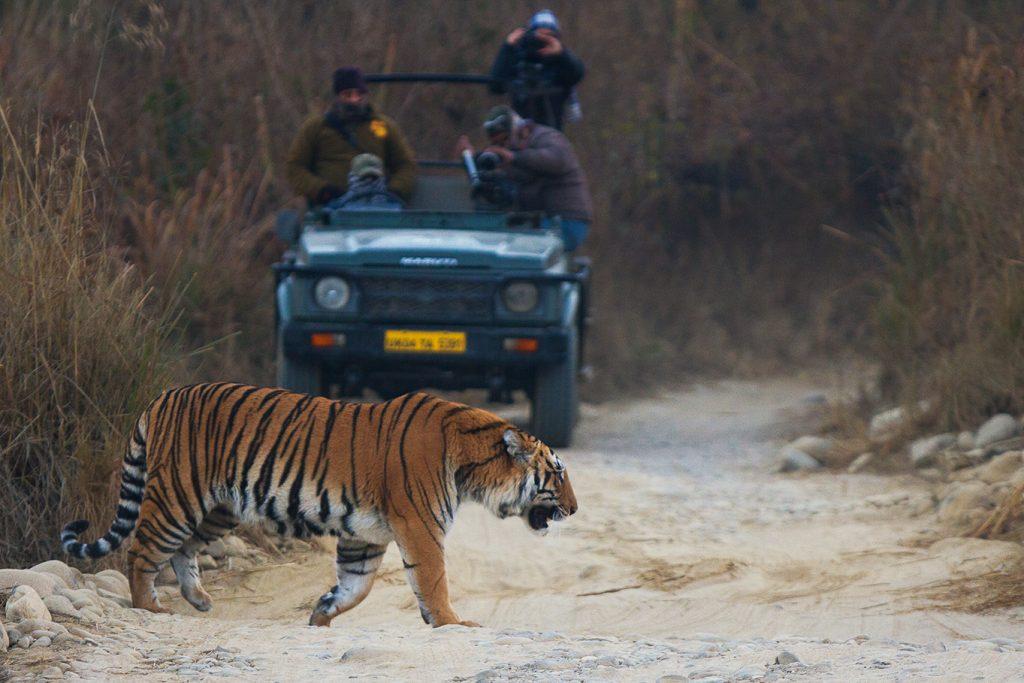
Jim Corbett National Park one of the most famous national parks in India named after the naturalist Edward James Jim Corbett. In fact, this is the first National Park in India.
- Declared as a National Park on: 1936
- Best time to visit: October- February
- Famous for: Bengal tiger, Red fox, Black bear, Jackal
- Location: Nainital, Uttarakhand
How to Reach there: View Direction
2. SUNDERBAN NATIONAL PARK
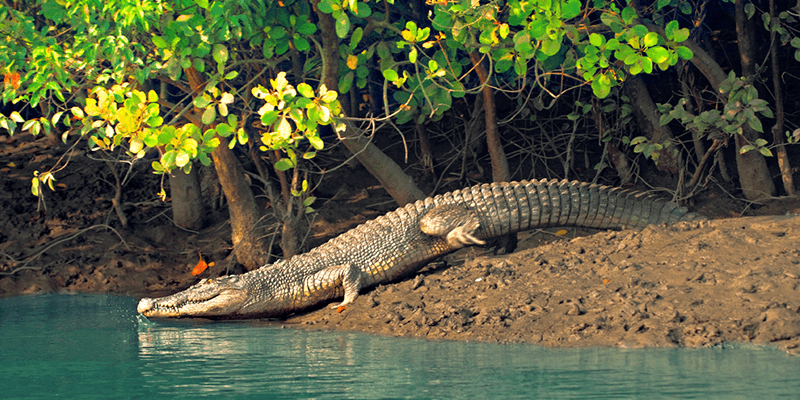
Home to the Royal Bengal Tigers, Sunderban National Park is located in West Bengal. The mangrove forest is one of the most famous tourist attractions. This forest area is an isolated place with no forest connection to other tiger-occupied lands. Sunderban forest got its name from the Sundari Tree.
- Declared as a National Park on 1984
- Best time to visit: September to March
- Famous for: Royal Bengal Tigers
- Location: Kolkata, West Bengal
How to Reach there: View Direction
3. Gir National Park
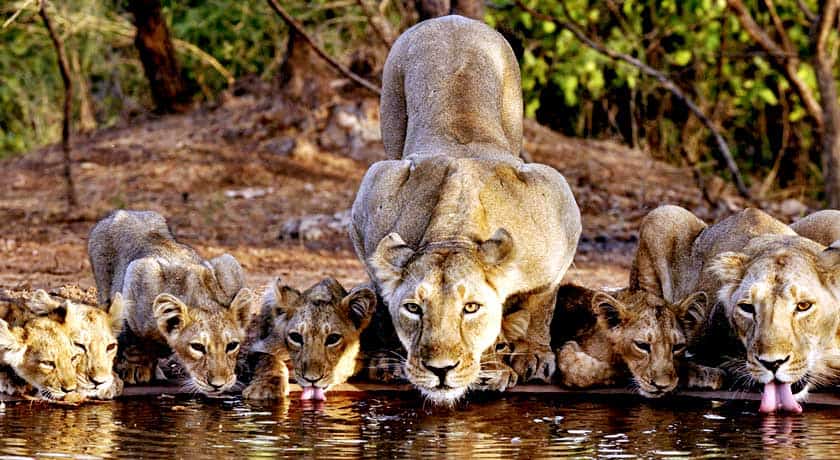
Gir Forest National Park is one of the best places to spot wild Asiatic Lions. Earlier it was used by the Nawabs as a hunting place, but in 1990 when it was discovered as a National Park, it was aimed to preserve the Lion species. In 1990, there were only 12 lions and today it has more than 600 lions.
- Declared as a National Park on: 1975
- Best time to visit: December to March
- Famous for: Wild Asiatic Lions
- Location: Gujarat
How to Reach there: View Direction
4. Silent Valley National Park
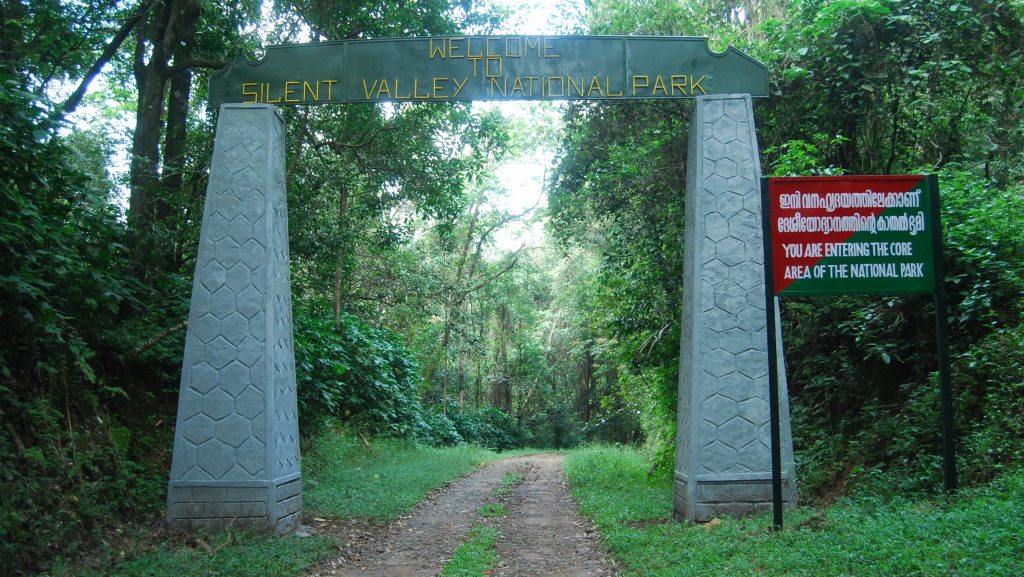
Enriched with the alluring beauty of flora and fauna, Silent Valley National Park is located in the lap of God’s own country-Kerala. It is named so because of the absence of the noisy cicadas. A second story says that it got its name because of the lion-tailed macaques(scientific name- Macacasilenus), present there.
- Declared as a National Park on 1980
- Best time to visit: December-April
- Famous for: Lion-Tailed Macaques
- Location: Palakkad, Kerala
How to Reach there: View Direction
5. Kaziranga National Park
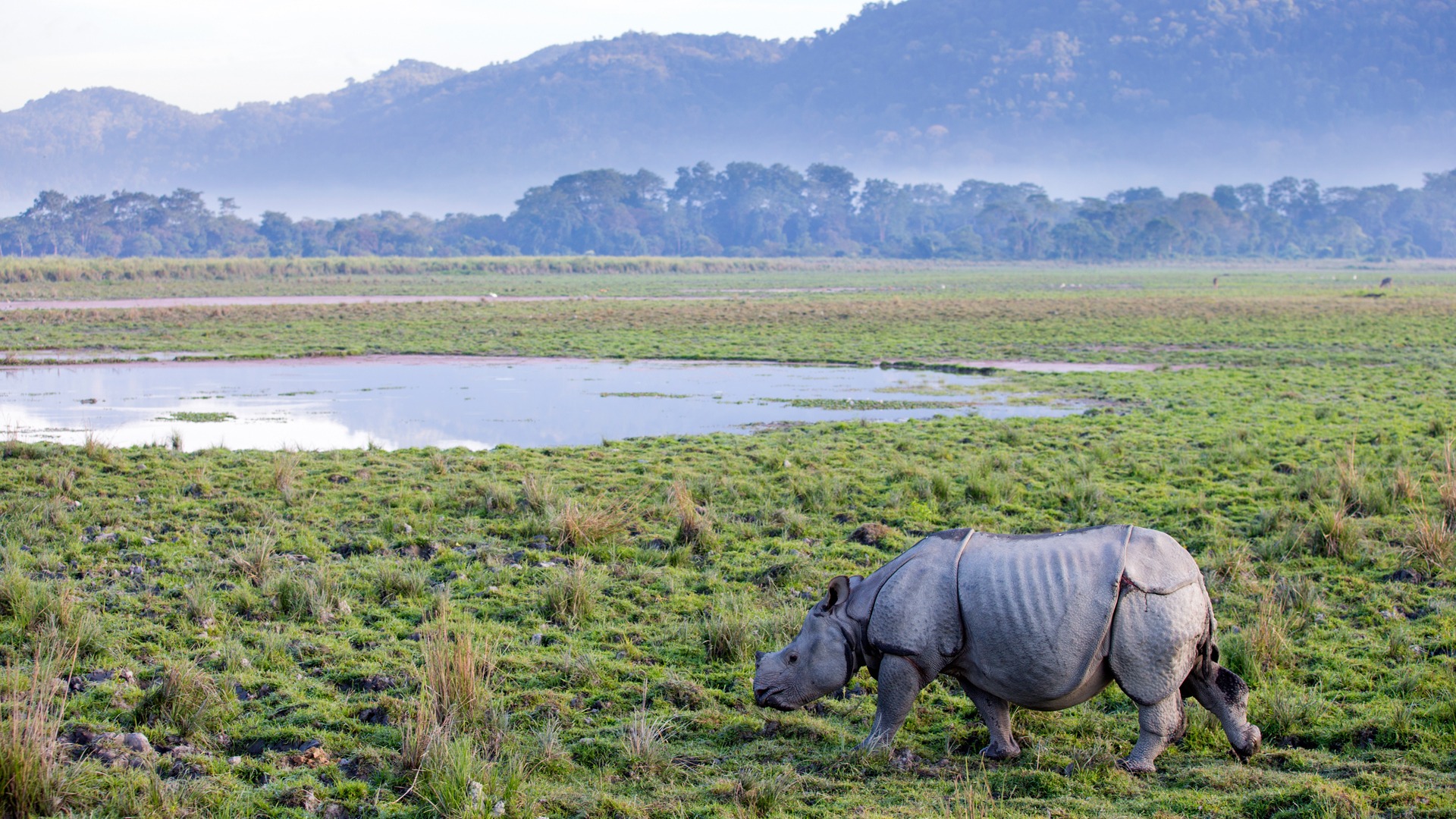
Famous for the conservation of the endangered species- one-horned rhinoceros, it is well- known as the “Home of Big five”, the animals being Great Indian one-horned rhinoceros, Indian Elephant, Royal Bengal Tiger, Eastern Swamp Deer, Wild Water Buffalo.
- Declared as a National Park on: 1974
- Best time to visit: November to April
- Famous for: One-horned Rhinoceros
- Location: Assam
How to Reach there: View Direction
6. Bandipur National Park
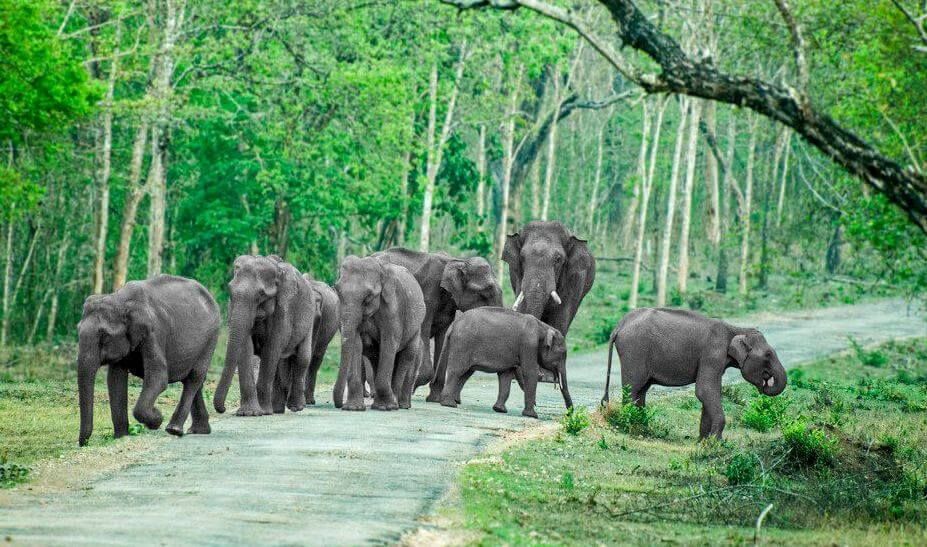
Best known for the varied wildlife, Bandipur National Park is one of the most prominent national parks in South India. It once served as a hunting reserve for the Maharajas of The Kingdom of Mysore and was named as Venugopala Wildlife Park in 1931. Later on in 1973, it was established as Bandipur Tiger Reserve under Project Tiger.
- Declared as a National Park on 1974
- Best time to visit: October-March
- Famous for: Tiger, Leopard, Indian Elephant
- Location: Karnataka
How to Reach there: View Direction
7. Eravikulam National Park
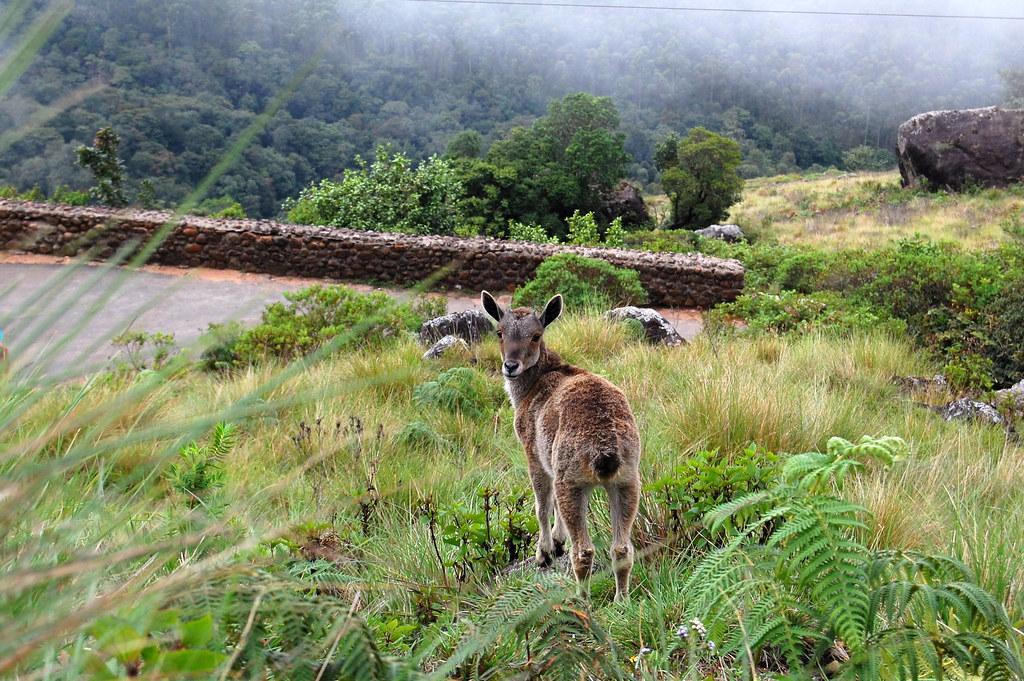
The oldest National Park of Kerala, along the Western Ghats of Idukki district, Eravikulam National Park has the largest population of endangered NilgiriTahr. This place is also famous for the “Neelakurunji flowers”, a flower that blooms only once in twelve years.
- Declared as a National Park on 1978
- Best time to visit: September to November and April to June
- Famous For: NilgiriTahr
- Location: Kerala
How to Reach there: View Direction
8. Kangchendzonga National Park

Nestled in the lap of Himalayas, Kangchendzonga National Park and is known for its enthralling scenic beauty of nature. Tholung monastery, one of the most sacred monasteries in Sikkim is located in this park.
- Established on: 1977
- Best time to visit: April to May
- Famous for:Moschus, Himalayan tahr
- Location: Sikkim
How to Reach there: View Direction
Also Read: 7 Major Mountain Ranges in India
9. Kanha National Park
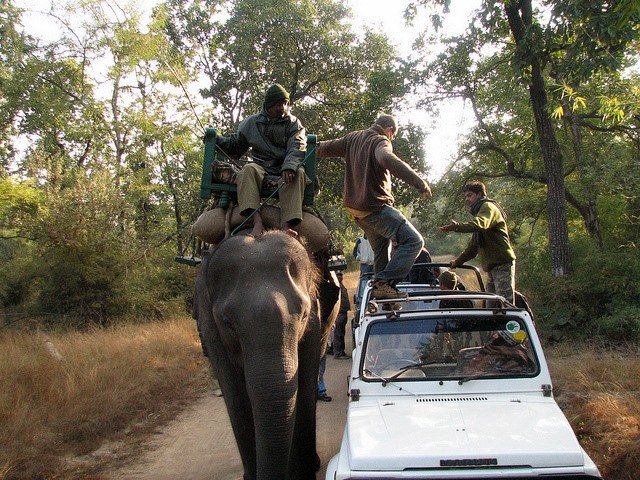
Kanha National Park, also known by the name, Kanha-Kisli National Park, is the largest national park in Madhya Pradesh. This is also the first tiger reserve to reintroduce Barasingha (Swamp Deer) in India.
- Established on: 1933
- Best time to visit: Mid October to June end
- Famous for: Royal Bengal Tiger, Indian Leopard, Swamp Deer
- Location: Madhya Pradesh
How to Reach there: View Direction
10. Sanjay Gandhi National Park
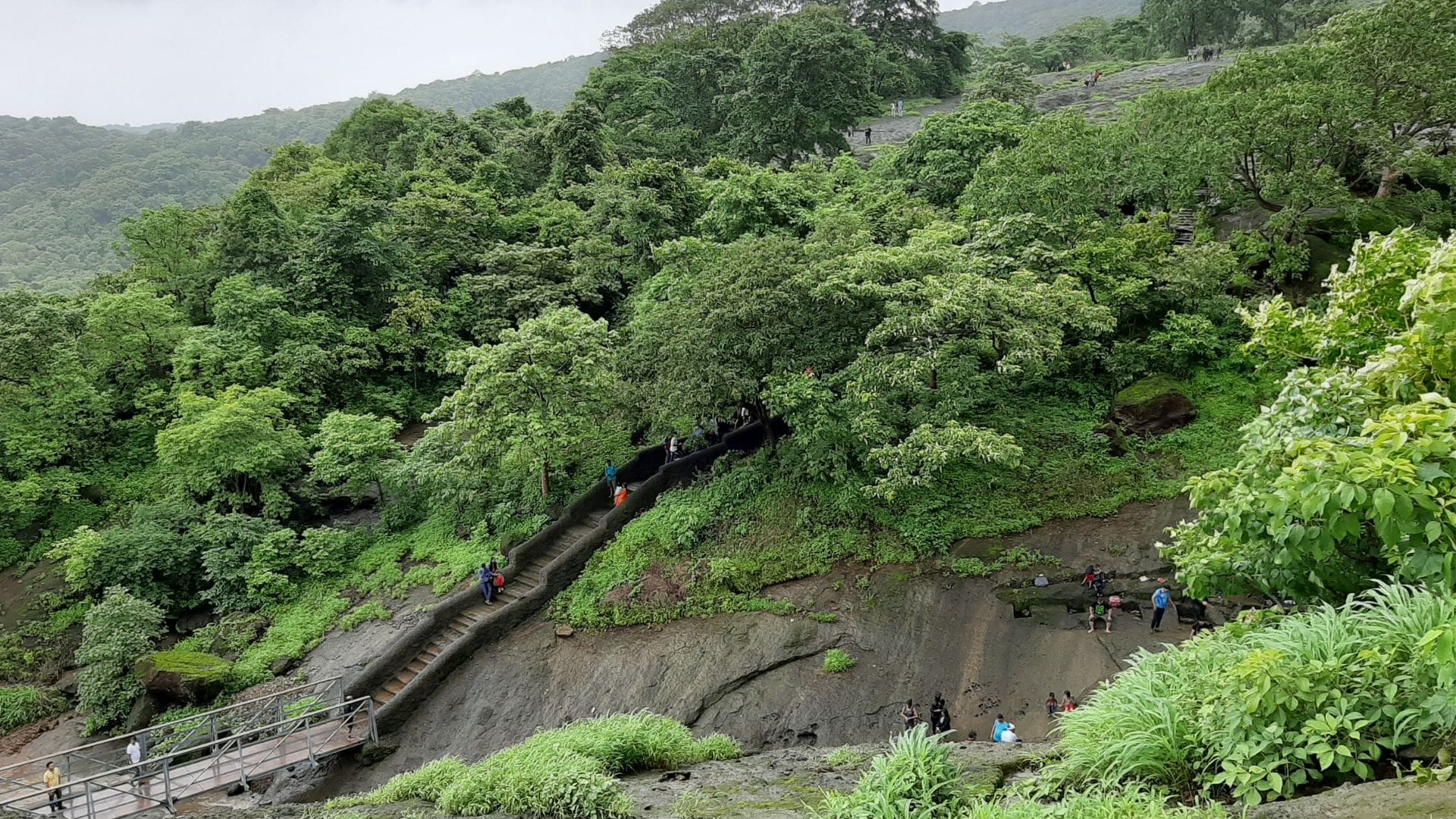
Besides the attractive flora and fauna, the park is famous for the 2400-year-old Kanheri caves, an important Buddhist learning center, sculpted by Buddhist monks then. This park was earlier known as Borivali National Park.
- Declared as a National Park on:1983
- Best time to visit: September to March
- Famous for: Tigers, Porcupine, HanumanLangur
- Location: Mumbai, Maharashtra
How to Reach there: View Direction
11. Dudhwa National Park
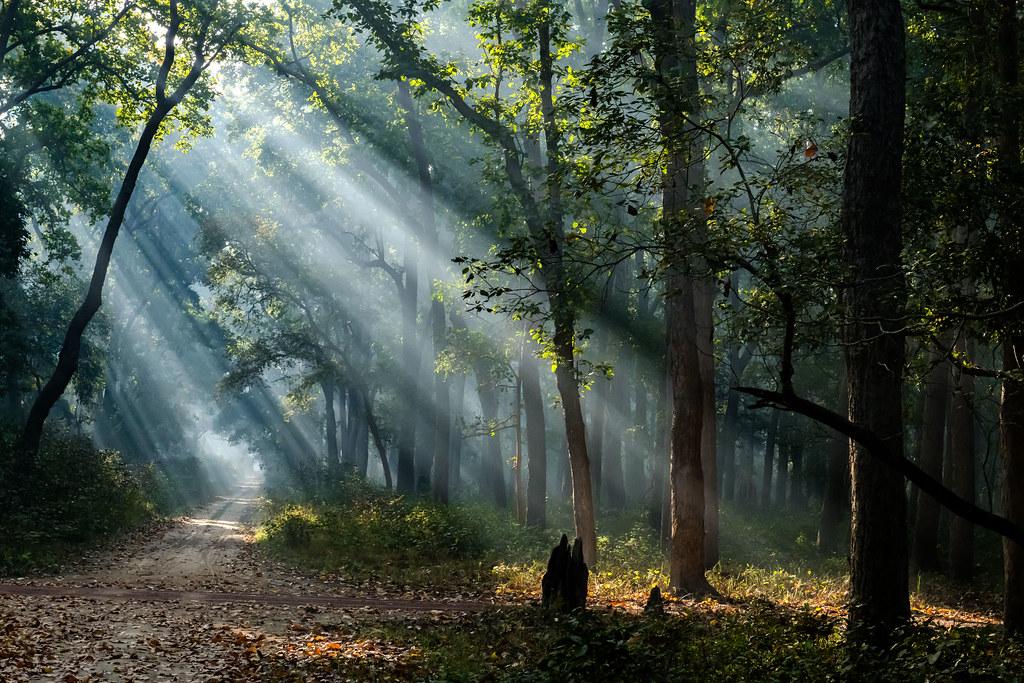
Situated under the sub-Himalayan area called Terai belt, Dudhwa National Park comprises a diverse alluvial plain. This acts as a home to various endangered species like Hispid hare, Swamp deer, and Bengal Florican.
- Declared as a Wildlife Sanctuary on 1977
- Best time to visit: 15th November to 15th June
- Famous for: Swamp Deer, Tiger
- Location: Uttar Pradesh
How to Reach there: View Direction
12. Panna National Park
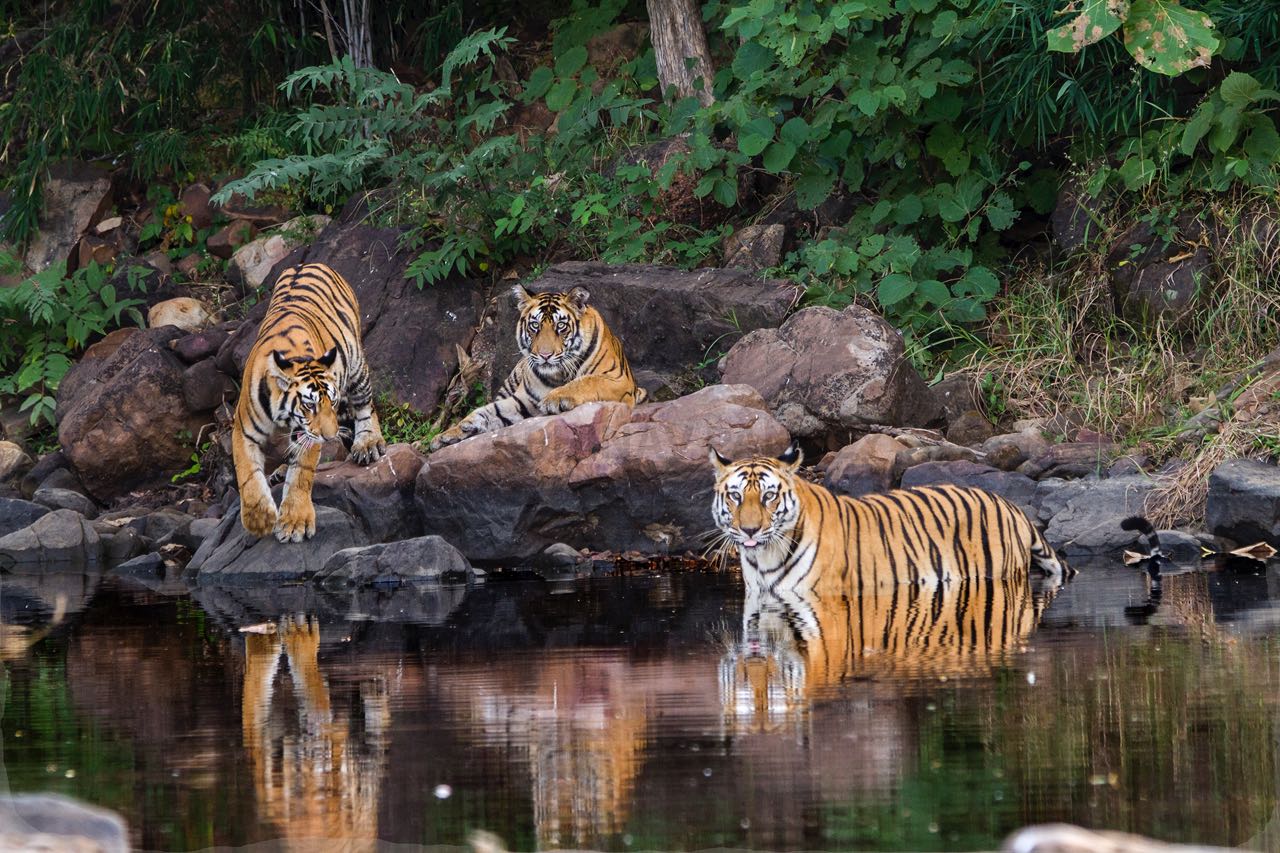
Winner of the ‘Award of Excellence’ in 2007 as the best maintained national park of India, Panna National Park is well-known for its wildlife and avifauna. In 1993, it was declared as the twenty-second Tiger reserve of India.
- Declared as a National Park on:1981
- Best time to visit: January to May
- Famous for: Blackbuck and spotted deer
- Location: Madhya Pradesh
How to Reach there: View Direction
13) Gorumara National Park
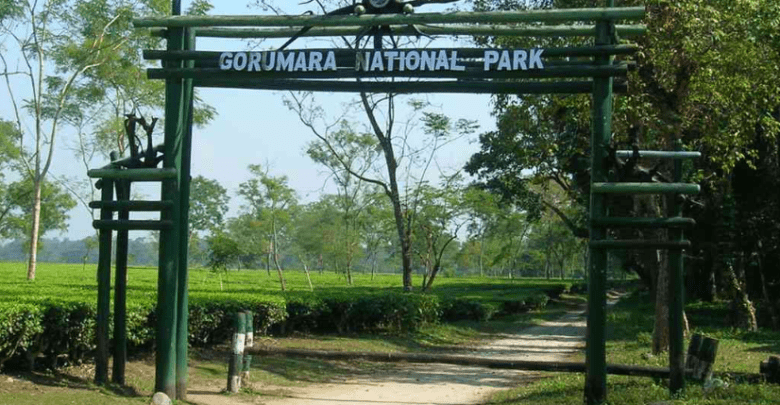
Primarily known for its population of Indian rhinoceros, Gorumara National Park is located in the Himalayan foothills in Northern West Bengal. Gorumara is also home to numerous tropical Orchids.
- Declared as a National Park on: 1994
- Best time to visit: October to May
- Famous for: Giant squirrels, Cobra, Python
- Location: West Bengal
How to Reach there: View Direction
14. Simlipal National Park
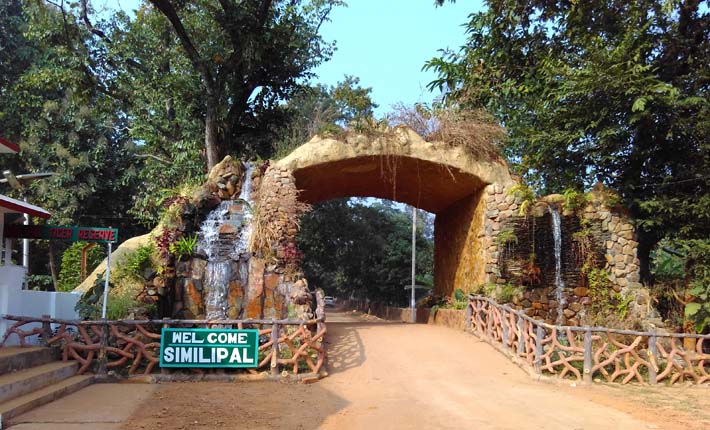
Being the seventh largest National park in India, Simlipal National Park got its name from the abundant red silk cotton trees growing in this place. The beautiful Joranda and Barehipani waterfalls add charm to this national park.
- Declared as a National Park on:1980
- Best time to visit: November to June
- Famous for: Bengal tiger, Asian Elephant, Gaur
- Location: Odisha
How to Reach there: View Direction
15. Satpura National Park
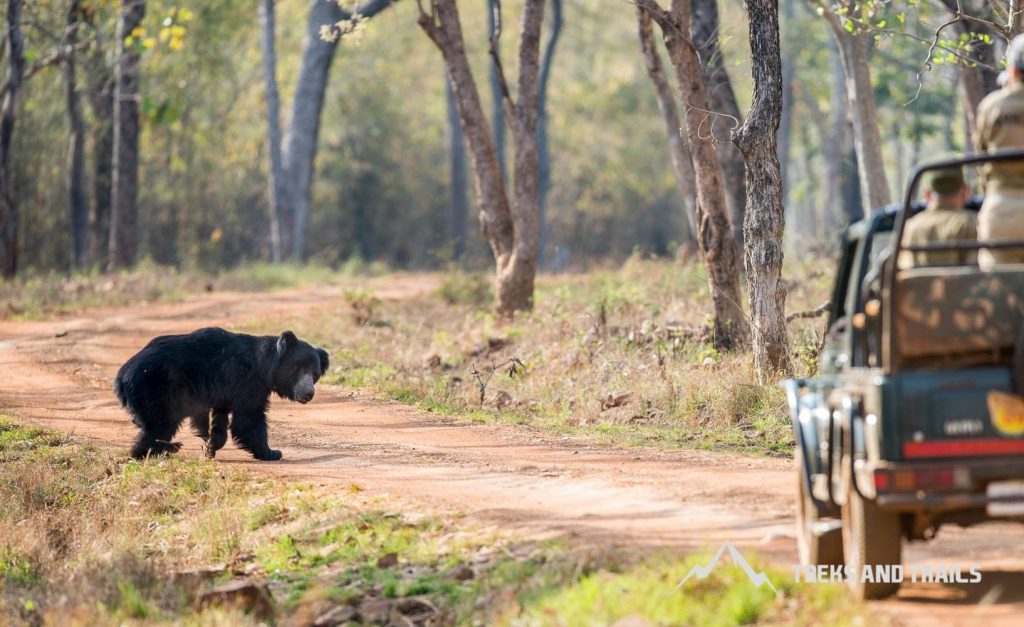
Rich in biodiversity and an exotic diversity of flora and fauna, Satpura National park is one of the first declared Reserved forest area in India for its ecological and commercial importance.
It is named so because of the Satpura Ranges. ‘Pandav caves’( according to Indian religious belief, it is a place where the Pandavas and Draupadi spent some of the parts of their exile here )is one of the main attractions of this place.
- Declared as a National park on 1981
- Best time to visit: November to February
- Famous for: Barasinghas
- Location: Madhya Pradesh
How to Reach there: View Direction
16. Periyar National Park
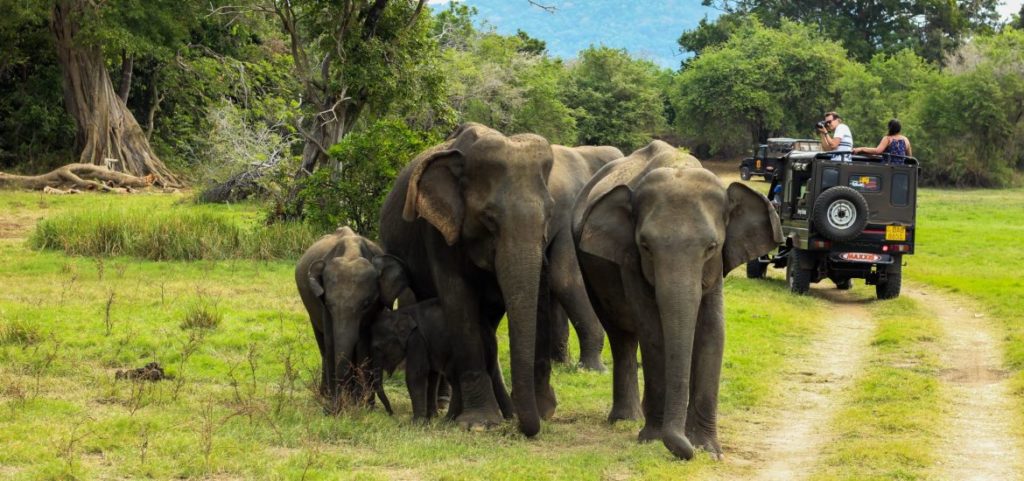
It lies in the middle of Cardamom Hills in Kerala and is well-known for its stillness and greenery.
It is surrounded by the Periyar Lake, formed when Mullaperiyar Dam was erected.
There are almost 35 species of mammals, 266 species of birds and 45 species of reptiles including the threatened ones.
Pamba and Periyar are the two main water bodies that help the flora and fauna in this sanctuary.
- Declared as a National Park: 1982
- Best time to visit: September to April
- Famous for: Elephants, Indian wild dog, Barking Deer
- Location: Kerala
How to Reach there: View Direction
17. Pench National Park
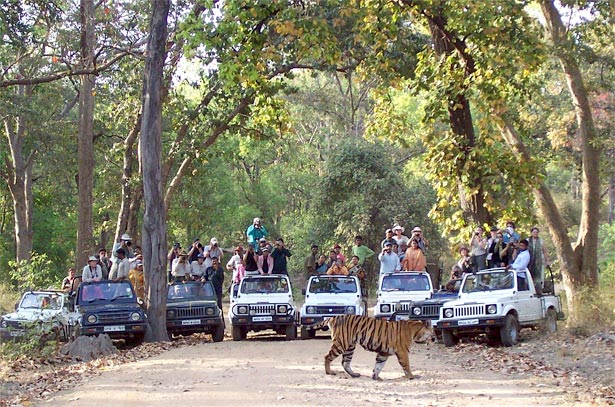
Pench National Park is undoubtedly, one of the star attractions of Madhya Pradesh. It serves as a domicile for a large species of fauna. The name is so because of the Pench river flowing through this national park.
Declared as a National Park on: 1977
- Best time to visit: February to April
- Famous for: Bengal Tiger, chital, sambar
- Location: Madhya Pradesh
How to Reach there: View Direction
18. Sariska Wildlife Sanctuary

A hidden gem of beautiful destination, Sariska Wildlife Sanctuary is a dwelling home for the majestic Bengal tigers.
Pandupol Hanuman Temple with attached waterfalls, is nestled within the rocky hills of Sariska Wildlife Sanctuary.
- Declared as a National Park on: 1979
- Best time to visit: October to June
- Famous for: Serpent eagles, Hare, Boars
- Location:Rajastan
How to Reach there: View Direction
19. Ranthambore National Park
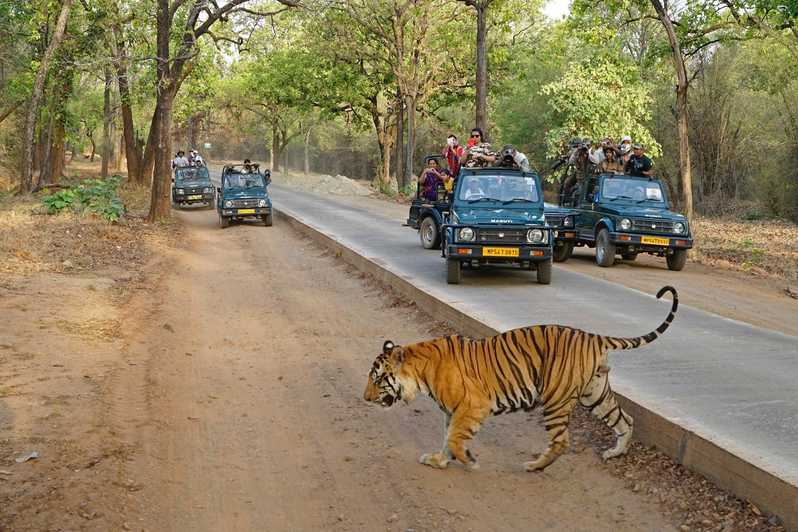
Housed with the historical Fortress within the park premise, Ranthambore national park is a part of the Project Tiger and has been a home to the Royal Bengal Tigers since 1974. The park is noted for the different varieties of snakes within it.
- Declared as a National park on: 1980
- Best time to visit: November to March
- Famous for: Different species of snakes
- Location: Rajasthan
How to Reach there: View Direction
Also Read: General Knowledge For Kids(105 Q & A)
20. Manas National Park
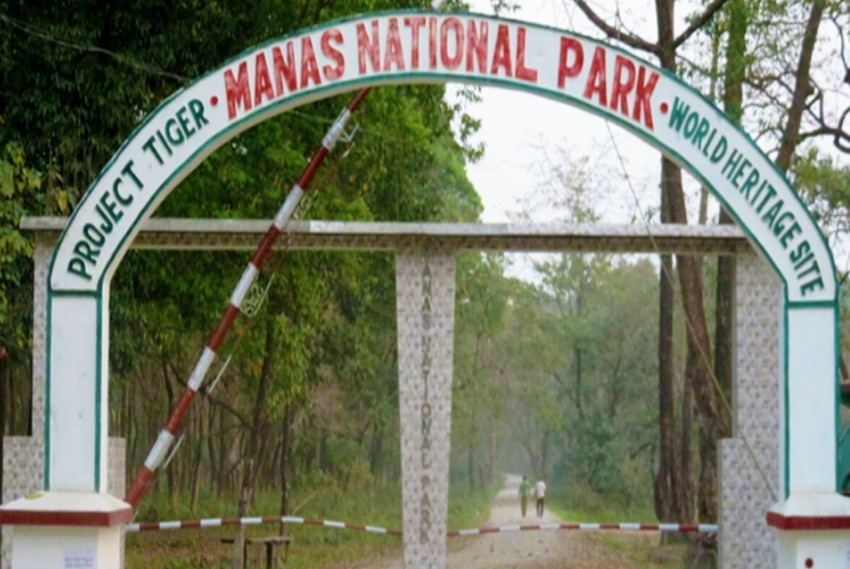
Known for its rare and endangered wildlife, Manas national park is famous for the Wild water buffalo. Since it originates from the Manasriver, it has been named as Manas national park. This park is also famous for maintaining the maximum number of endangered species from India, listed in the Red Book.
- Declared as a Sanctuary on:1928
- Best time to visit: October to May
- Famous for:Assam roofed turtle, golden langur
- Location: Assam
How to Reach there: View Direction
21. Van Vihar National Park
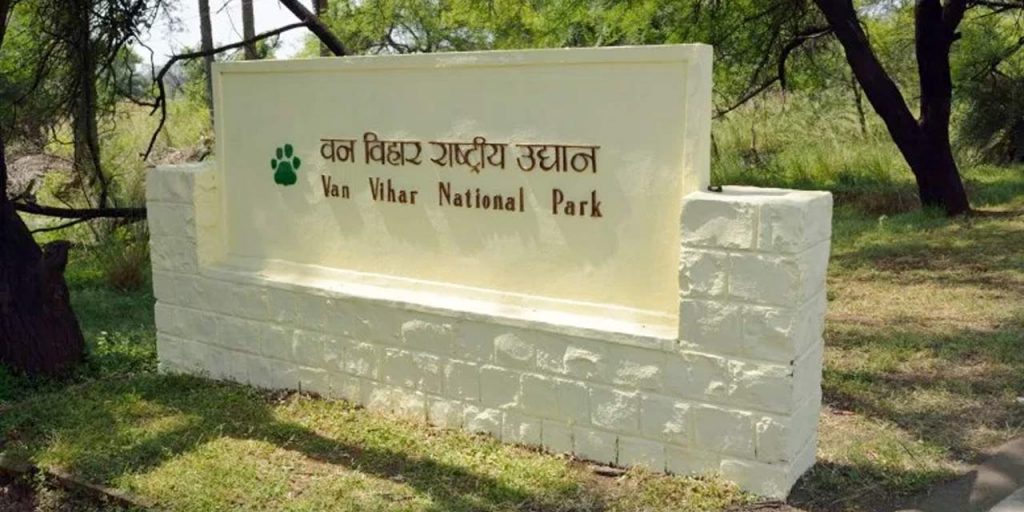
Shining beacon in the field of conservation, Van Vihar national park is one of the most admired national parks in India. This park divides the animals into two categories, carnivorous and herbivorous. All herbivorous animals are let to roam freely whereas the carnivorous are kept inside enclosed areas.
- Declared as a National Park on: 1979
- Best time to visit:July to September
- Famous for: Bengal tiger, Nilgai, Sloth bear
- Location: Madhya Pradesh
How to Reach there: View Direction
22. Keoladeo National Park
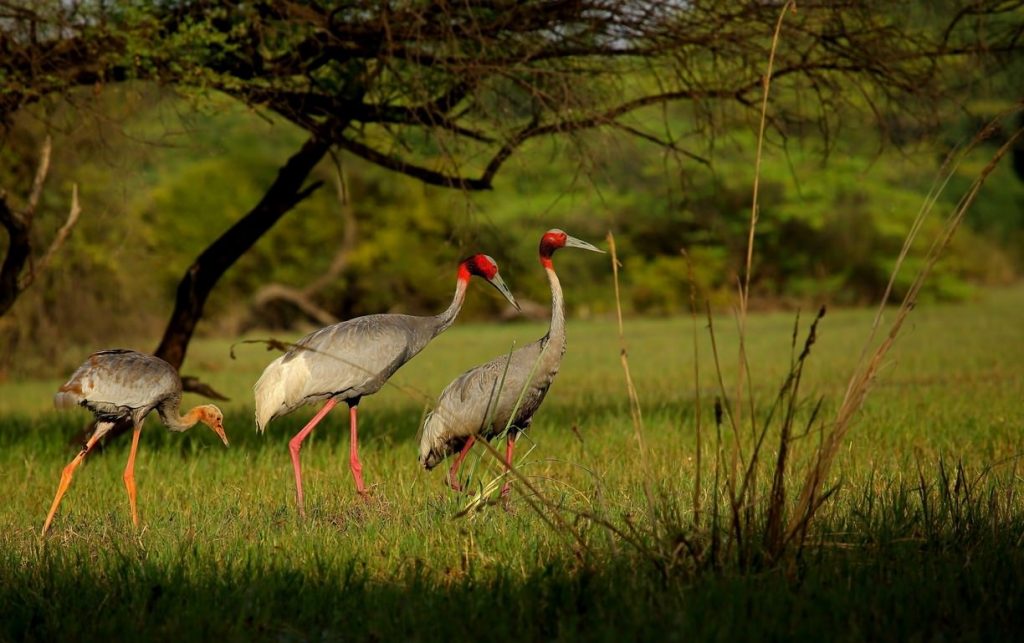
Earlier known by the name Bharatpur National park, Keoladeo National Park is a home to the exotic birds and animals. Though it was declared as a national park in 1982, it got its recognition from UNESCO in 1985.
- Declared as a National Park on: 1982
- Best time to visit: August to November
- Famous for: Migratory birds like Palaeartic migratory waterfowl,especially during the winter time
- Location: Rajasthan
How to Reach there: View Direction
23. Rajaji National Park
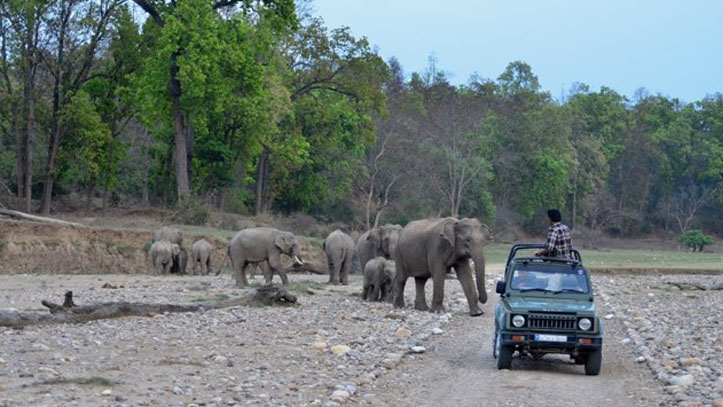
Cuddled between the Shivalik ranges and the Indo-Gangetic plains,Rajaji national park is distinct for its scenic beauty and rich bio-diversity. It is named after Sri. Rajgopalachari (known as Rajaji), a famous freedom fighter.
- Established on: 1983
- Best time to visit: November to June
- Famous for: Tiger, leopard, Himalayan bear
- Location: Uttrakhand
How to Reach there: View Direction
24. The Great Himalayan National Park
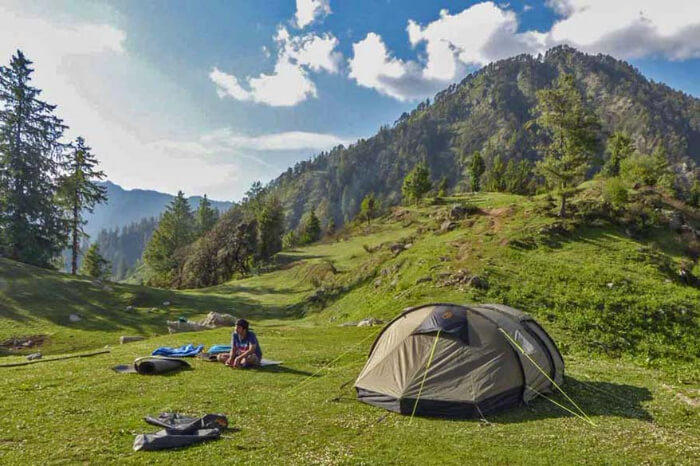
A magnificent national park and a place to relax for the tourists, away from the hustle-bustle of the city life, The Great Himalayan National Park, is a habitat to numerous flora and fauna. The park got its recognition from UNESCO in 2014.
- Established on: 1984
- Best time to visit: March to June and Mid September to November
- Famous for:Bharal, Himalayan Brown bear, Snow leopard
- Location: Himachal Pradesh
How to Reach there: View Direction
25. Bandhavgarh National Park

‘Bandhav-garh’ means fort of the brother, and is believed to been gifted by Lord Ram to his brothe Laxman.This is the largest tiger reserve in India. It has the highest number of Royal Bengal Tigers in India.
- Declared as a National Park on: 1968
- Best time to visit: October to June
- Famous for: Royal Bengal Tiger, Asiatic jackals, sloth bears
- Location:Madhya Pradesh
How to Reach there: View Direction
26. Nagarhole National Park

Enriched with its enchanting beauty of flora and fauna, Nagarhole national park is a domicile to a number of majestic reptiles such as vine snake, tortoise, King Cobra and Indian Rock Python. It was declared as the thirty seventh Project Tiger, Tiger reserves of India.
- Declared as a National Park on: 1988
- Best time to visit: April to May
- Famous for: Elephant, Guar, and Tiger
- Location: Mysore, Karnataka
How to Reach there: View Direction
27. Bannarghatta National Park
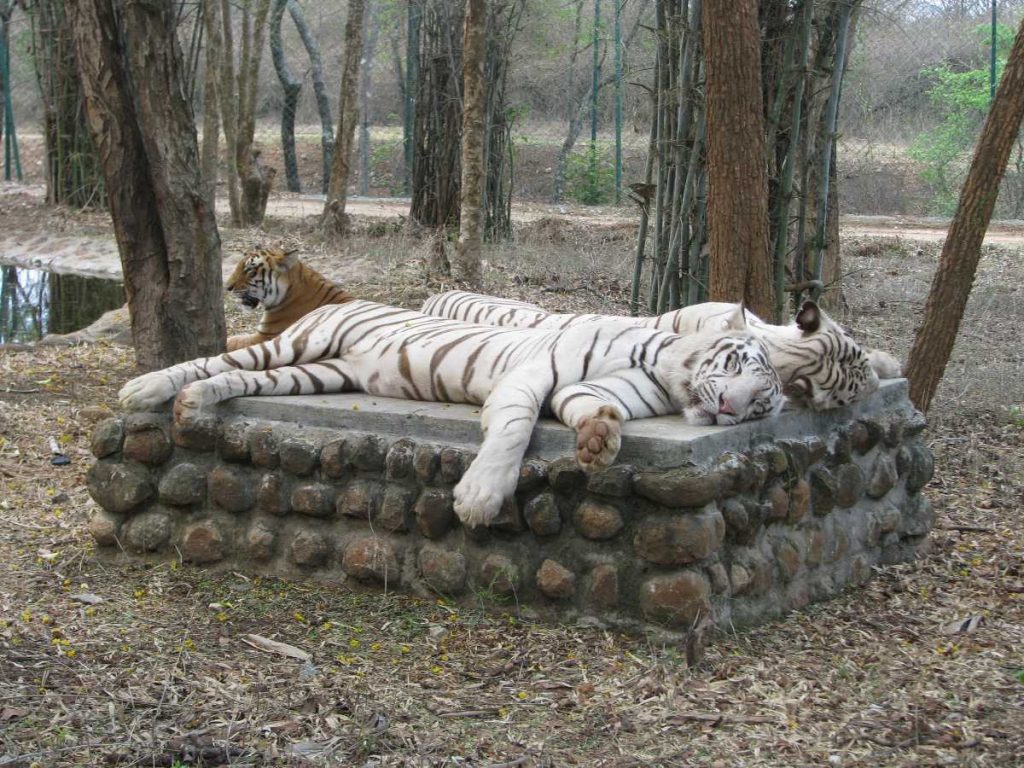
Bannarghatta National Park is adorned with India’s first butterfly enclosure within it. The butterfly conservatory is a circular enclosure with a poly-carbonate roof. Apart from this, ancient temples, a zoo, a pet corner, an animal rescue centre, an aquarium, a snake house and a safari park adds charm to the park.
- Declared as a National Park on:1974
- Best time to visit: November to June
- Famous for:Different butterflies and endangered species of Tiger, wild boar
- Location: Bangalore, Karnataka
How to Reach there: View Direction
28. Wandoor Marine National Park
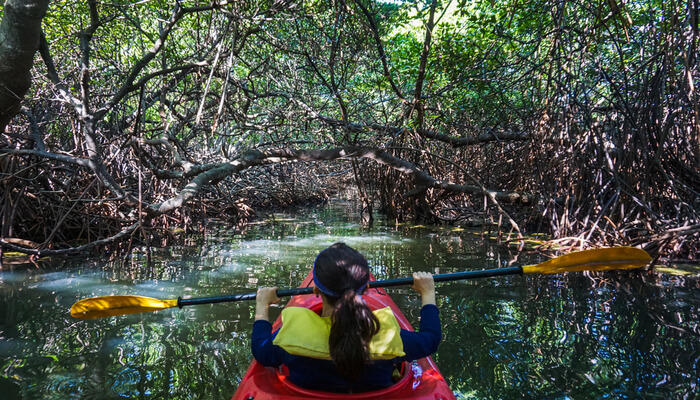
This park is also known by the name Mahatma Gandhi National Park. It was created to protect marine life like the corals and nesting sea turtles in the area. The park has two major islands- Labyrinth Islands and the Twin Islands.The islands are uninhabited land, but there is a population of about 7000 people, in the adjacent villages.
- Declared as a National Park on: 1989
- Best time to visit: November to January
- Famous for: King cobra, pit viper, day gecko
- Location: Andaman Islands
How to Reach there: View Direction
29. Mudumalai National Park
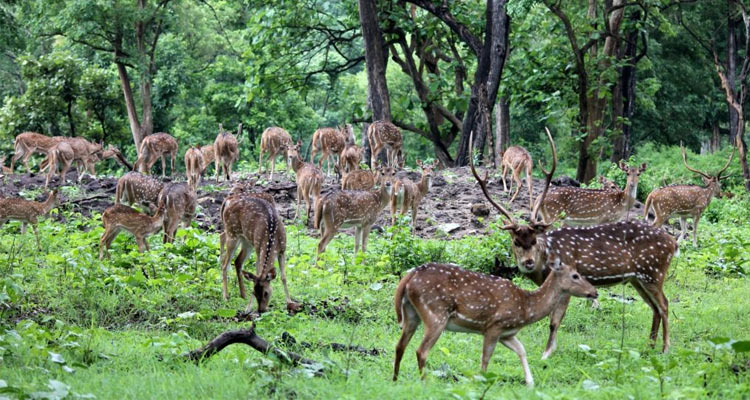
Mudumalai National Park is one of the national parks in india with the dual status of a national park and a wildlife sanctuary. It was declared as a tiger reserve in 2007, in an effort to conserve the tiger population.
The three types of forests- Tropical moist deciduous, Tropical dry deciduous, Southern Tropical dry thorn forests enrich the beauty of the forest.
- Declared as a National Park on: 1990
- Best time to visit: December to June
- Famous for: Royal Bengal Tigers, Giant Malabar Squirrels
- Location: Tamil Nadu
How to Reach there: View Direction
30. Jaldapara National Park
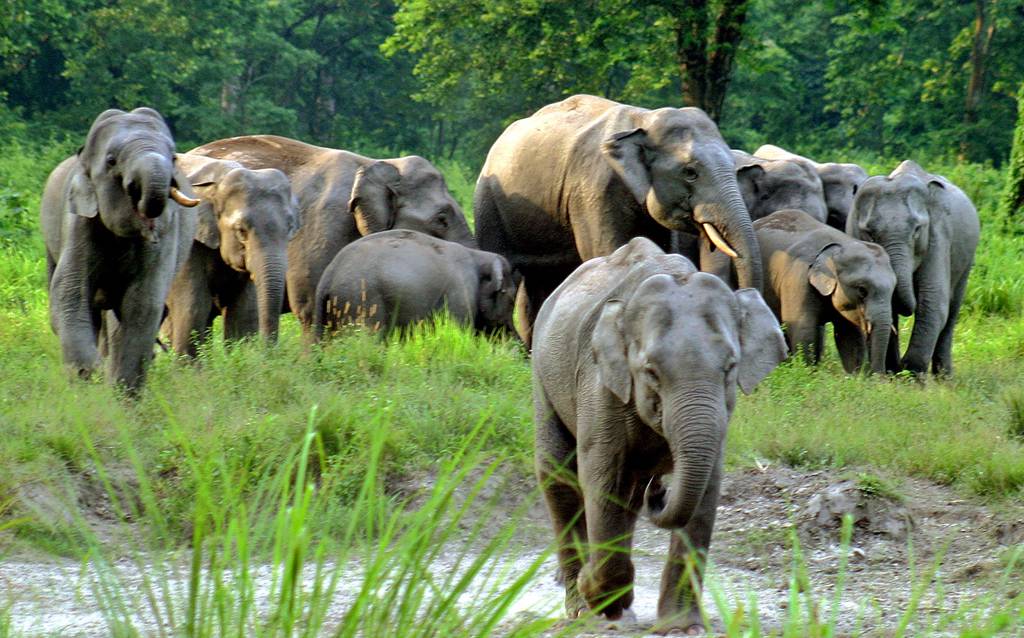
Being a paradise for the bird watchers, Jaldapara national park is one of the places in India to spot the Bengal floricans. But it is well-known for its population of the one-horned Indian rhinoceros. This park is famous for Elephant safari.
- Declared as a Wildlife Sanctuary on: 1994
- Best times to visit: September to December and March to May
- Famous for: One-horned rhinoceros, Bengal Tigers and spotted deer
- Location: West Bengal
How to Reach there: View Direction
31. Pin Valley National Park
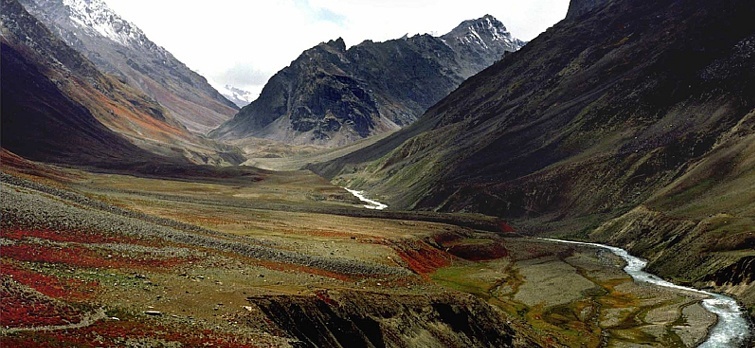
Garnished with the majestic Pin river, Pin Valley national park is considered as home to the “grey ghost of Himalayas”, the Snow leopard. It hasthe second oldest monastery- Kungri Monastery in it.
- Declared as a National Park on: 1987
- Best time to visit: October to July
- Famous for: Siberian Ibex and the rare Snow leopard
- Location: Himachal Pradesh
How to Reach there: View Direction
32. Orang National Park
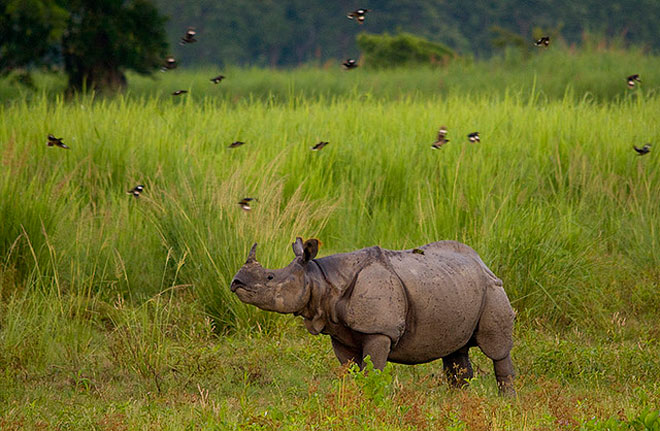
This is nick named as Mini Kaziranga, due to the similarity in landscapes. But it is officially called as Rajiv Gandhi Orang National Park. It is situated along the shores of the river Brahmaputra. It is the 49th Tiger reserve of our country.
- Declared as a National Park on: 1999
- Best time to visit: November to February
- Famous for: Rhino and Tiger
- Location: Assam
How to Reach there: View Direction
33. Desert National Park

Being an excellent example of the ecosystem, Desert national park is a haven for the migratory and resident birds of the desert. The endangered Indian bustard is the major attraction of this National park. It migrates to nearby places in different times. It also has a collection of fossils of animals and plants of 180 million years old.
- Declared as a National Park on: 1980
- Best time to visit: November to January
- Famous for: Great Indian Bustard and Falcon
- Location: Rajasthan
How to Reach there: View Direction
34. Mrugavani National Park

Well-known for the deer and peacock population, Mrugavani national park is home to a plethora of plant and animal species. It has a pleasant climate throughout the year. Mrugavani national park also provides a reading room, an auditorium, a center for education and a museum for the travelers.
- Declared as a National park on:1994
- Best time to visit: Can be visited throughout the year
- Famous for:
- Location:Telangana
How to Reach there: View Direction
35. Kishtwar National Park
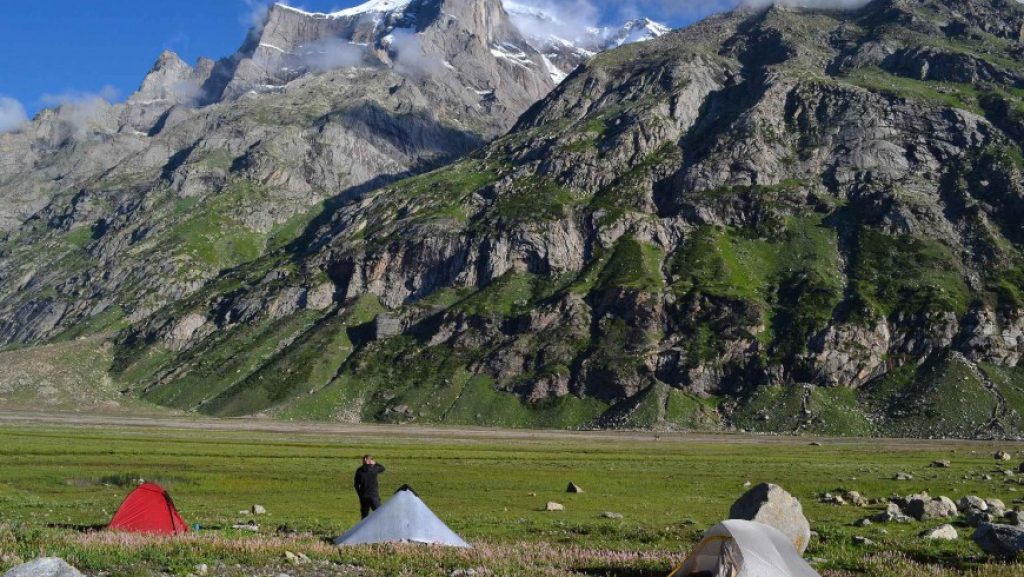
Acquainted with nature in its best form, Kishtwar national park is elevated with narrow valleys. Besides mammal viewing and bird watching, it offers aeye-soothing view of nature and its serenity.
- Declared as a National park on: 1981
- Best time to visit: May to October
- Famous for: Endangered snow leopards, Himalayan jungle crow, Paradise flycatcher, Griffon Vulture
- Location: Jammu and Kashmir
How to Reach there: View Direction
36. Anshi National Park
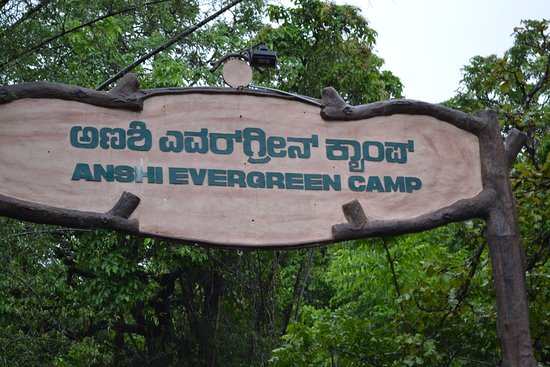
Also known by the name Kali Tiger Reserve, the Anshi National Park is surrounded by lush greenery. In 2007, Anshi national park and Dandeli Wildlife Sanctuary were together granted the status of Project Tiger tiger reserve, and then it was called as AnshiDandeli Tiger Reserve.
- Declared as a National park on: 1975
- Best time to visit: November to June
- Famous for: Bengal tigers, Black panthers and Indian elephants
- Location: Karnataka
How to Reach there: View Direction
Also Read: Geography Quiz For Kids (107 Questions and Answers)
37. Mount Harriet National Park
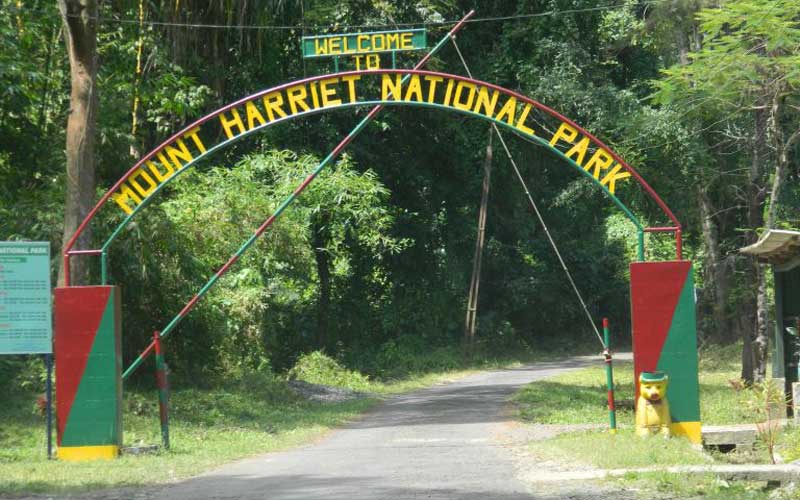
Mount Harriet National Park has the third highest peak in Andaman Islands. The park is named in the memory of Harriet c Tytler, the second wife of Robert Christopher Tytler(a British army officer). The backside of the twenty rupee note has the image from this park. ‘Kalapathar’- a place where criminals were dropped to death, is a notable feature of the park.
- Declared as a National Park on: 1987
- Best time to visit: January to March
- Famous for: Robber crabs, Andaman wild pigs
- Location: Port Blair, Andaman
How to Reach there: View Direction
38. Inderkilla National Park
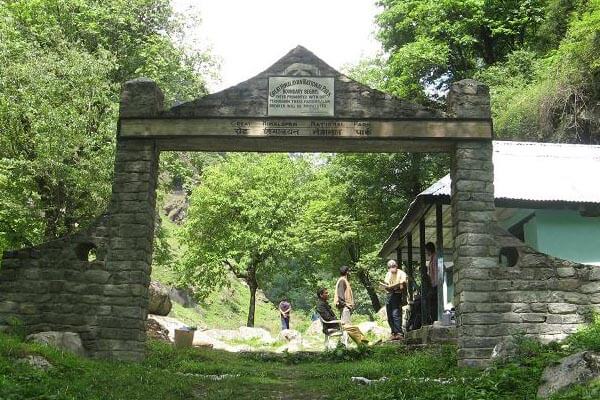
Though this newly established national park,is well-known for being a habitat to the most significant species of animals, but it is considered to be one of the least visited national parks in India.
- Established on: 2010
- Best time to visit: October and November
- Famous for:wide range of exotic species of birds and plants.
- Location: Himachal Pradesh
How to Reach there: View Direction
39. Namdapha National Park
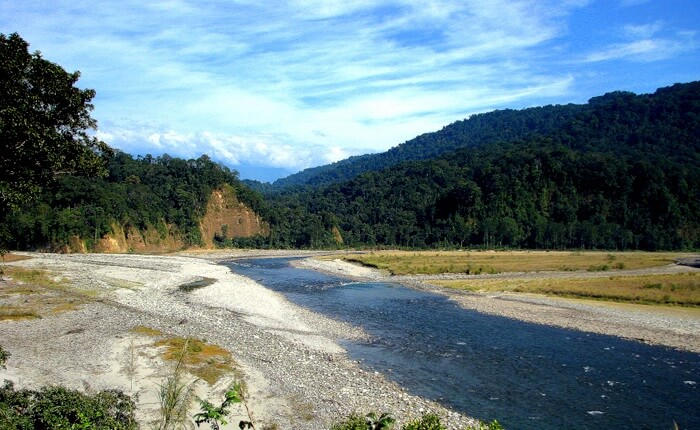
The name Namdapha is a combination of two Singpho words- ‘nam’ means name and ‘dapha’ means origin( river which originates from Dapha Bum glaciers). It is also known as Northeast’s most Paradisiacal gem. Miao museum is one of the major attractions of this place, it houses the animal specimens including snakes and frogs, a large number of bird skins, mammal pelts, and skulls. Besides this, it has the highest number of Snow Leopards in the world.
- Declared as a National park on: 1983
- Best time to visit: October to March
- Famous for: Snow Leopards
- Location: Arunachal Pradesh
How to Reach there: View Direction
40. Hemis National Park
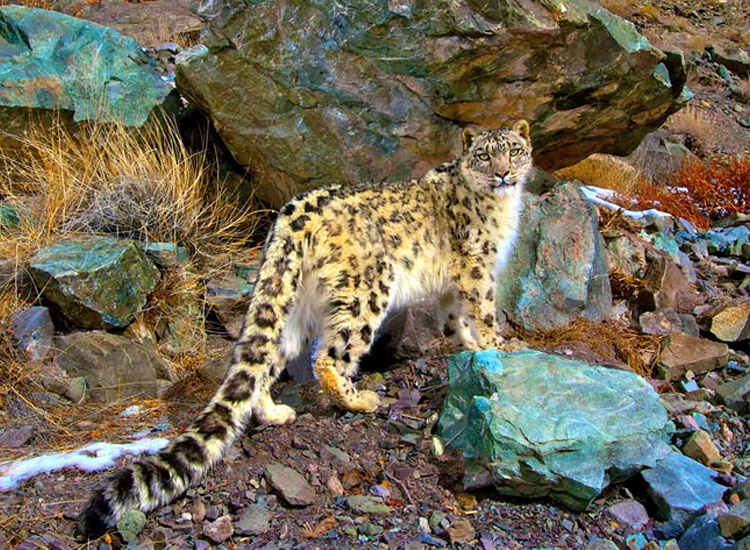
This park is named after the HemisGompha monastery in Ladakh. It showcases a wide variety of landscape of Ladakh, with many species of fauna and avifauna. The boundary of the Indus river enriches the beauty of the park.
- Declared as a National Park on: 1987
- Best time to visit: May and early October
- Famous for:Shapu sheep and Snow Leopard
- Location:Ladakh
How to Reach there: View Direction
41. Dachingham National Park
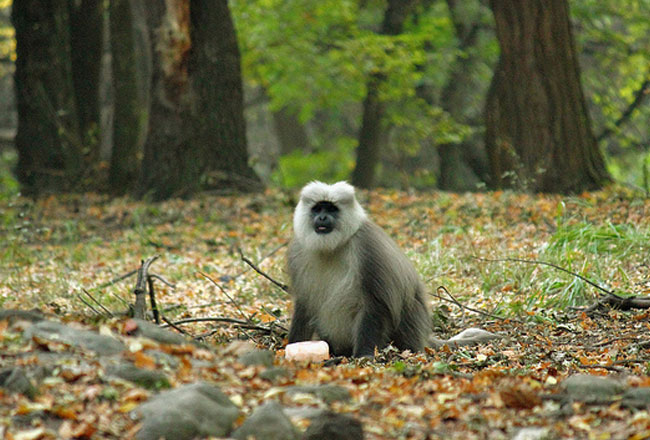
The literal meaning of ‘Dachingam’ is ‘ten villages’, which were included to form the Dachingam National park. This park was initially created to assure clean drinking water for Srinagar. And later on, it was declared as a National park in 1981.
- Declared as a National park on: 1981
- Best time to visit: April to October
- Famous for:Hangul, Kashmir stag
- Location: Srinagar, Jammu and Kashmir
How to Reach there: View Direction
42. Betla National Park
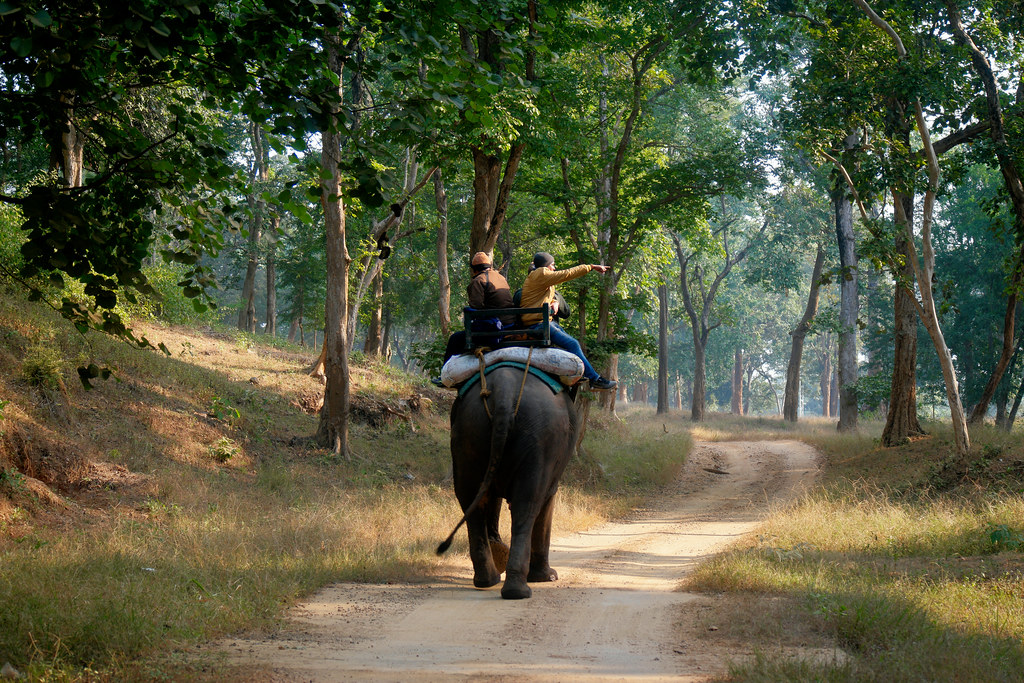
Betla national park is one of the first national parks in India to become a tiger reserve under Project Tiger. The beautiful Pristine Waterfalls, natural hot springs and a smattering of monuments can be traced in this park. There is a full-fledged library and a museum in the park, to enrich the visitor’s knowledge of the park.
- Declared as a National Park:1986
- Best time to visit:November to March
- Famous for:Elephants, Wolf, Jackal,
- Location: Jharkhand
How to Reach there: View Direction
43. Bison National Park
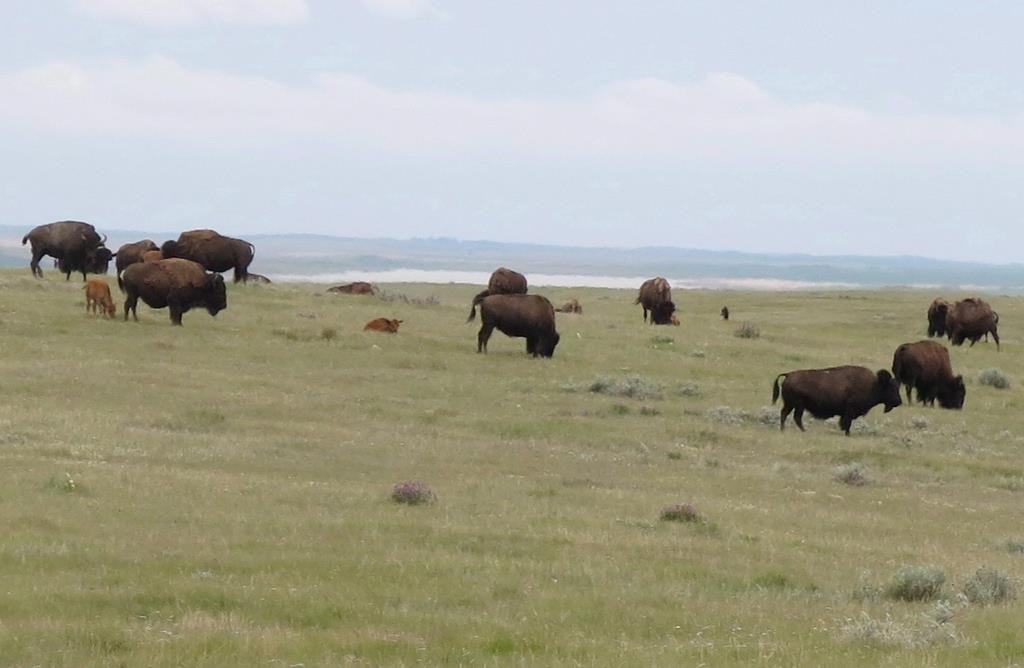
Also known as Rajbari national park,is one of the best places where the Mother nature can be witnessed at her best.It was made with an aim to protect the endangered species of plants and animals.
- Best time to visit: Can be visited at any time of the year
- Famous for: Gaur, deer, Golden Langur
- Location: Tripura
How to Reach there: View Direction
44. Blackbuck National Park
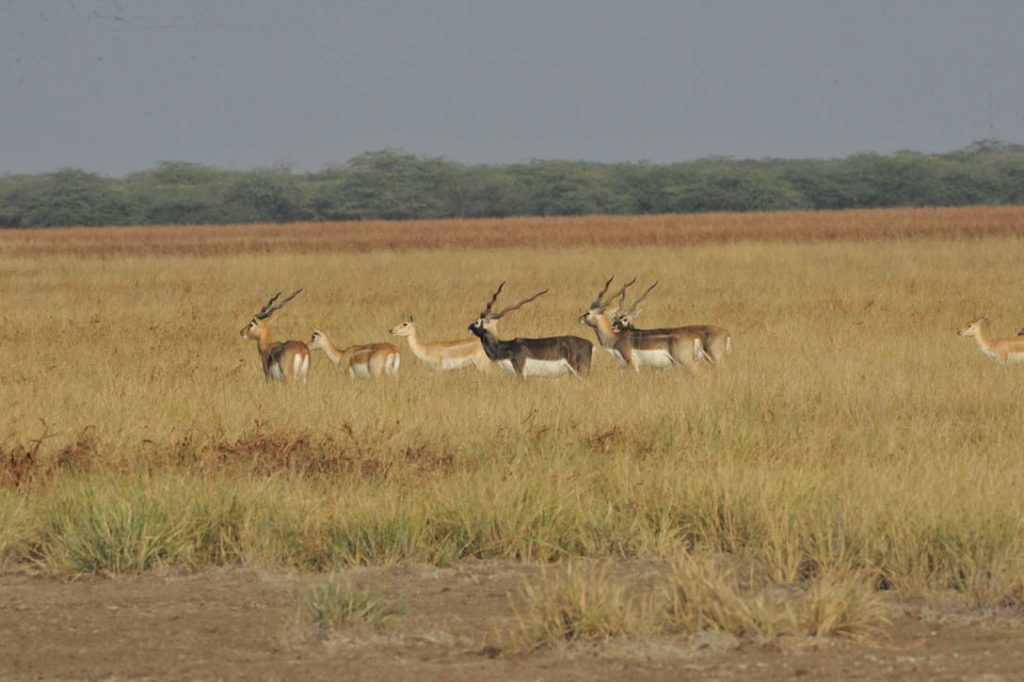
Blackbuck National Park is also known as Velavadar National Park. It is well-known for the population of Blackbucks. Herds of Blackbucks are found in the northern side of the park. This is also conservation center for Wolves and Lesser Floricans.
- Established on: 1976
- Best time to visit:December to March
- Famous for: Blackbuck antelopes, Male Nilgai
- Location: Gujarat
How to Reach there: View Direction
45. Buxa National Park
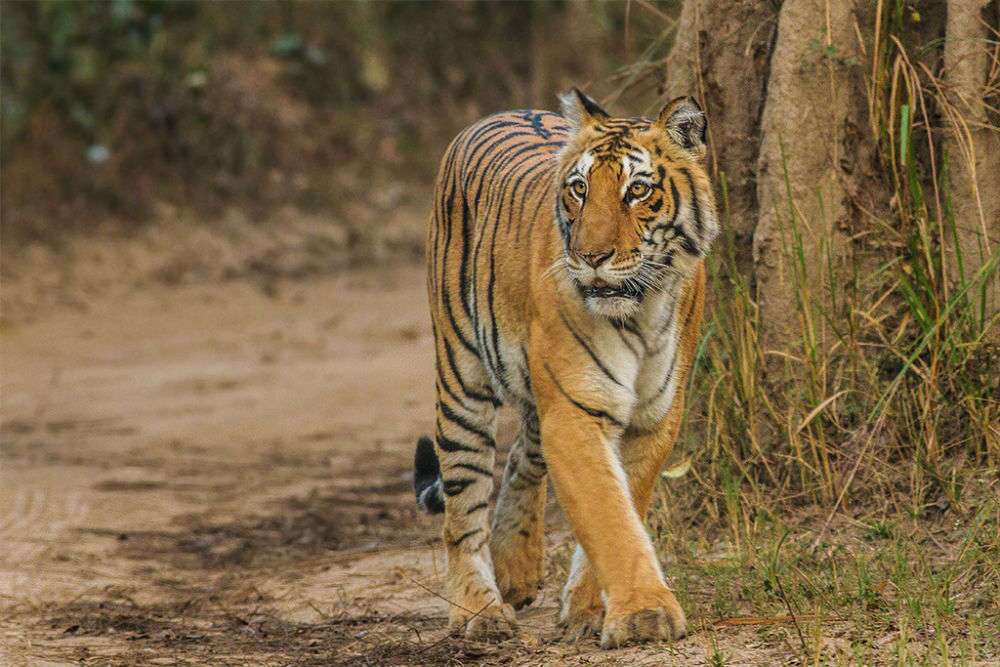
Buxa Tiger reserve was created as the 15th Tiger reserve in India in 1983, and it was declared as a national park in 1992. Buxa Fort is an important landmark of this reserve as this was one of the forts used as a detention camp during the Indian freedom movement.
- Declared as a National Park on: 1992
- Best time to visit: October to March
- Famous for:Red jungle fowl, Blue rock thrush
- Location: West Bengal
How to Reach there: View Direction
46. Campbell National Park
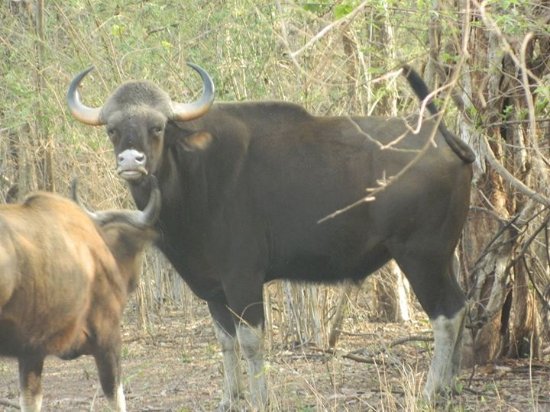
World famous for its extraordinary collection of wave-sculpted rock formations and the twelve Apostles, Campbell National Park has a very pleasant moderate climate, even when the other places in India experience the scorching weather conditions. This park is separated by a buffer zone known as the Galathea National Park.
- Declared as a National Park on: 1992
- Best time to visit: March to October
- Famous for: Crab-eating Macaque, the Megapode, Nicobar Pigeon
- Location: Great Nicobar
How to Reach there: View Direction
Also Read: Top 17 Best Apps For Teachers and Educators
47. Guindy National Park

Being the 8th smallest national park in India, is an extension of the ‘Raj Bhavan’(Guindy Lodge- official residence of the governor of Tamil Nadu).The Guindy Snake Park and the Children’s Park are major attractions of the park.
- Declared as a National Park on: 1978
- Famous for: Blackbuck, chital or spotted deer
- Location: Tamil Nadu
How to Reach there: View Direction
48. KasuBrahmananda Reddy National Park
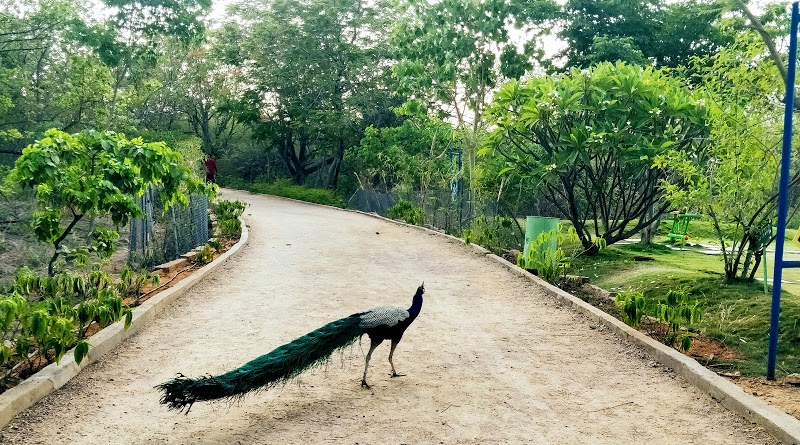
Also known by the name, Chiran Palace or ChiranFort, is a vast area of rich flora and fauna. It is named after one of the most famous leaders and the former Chief Ministers of Andhra Pradesh- KasuBrahmananda. The park houses hundreds of varied species of trees, birds and insects.
- Declared as a National Park on: 1998
- Best time to visit: July to September and November to February
- Famous for:
- Location:Telengana
How to Reach there: View Direction
49. Kudremukh National Park

Kudremukh National Park is a nature’s paradise. Kadambi Waterfalls and the Hanumangundi Falls are one the most popular and unique attractions of the park. Besides this, the park is also surrounded with rich coffee and tea plantations.
- Declared as a National Park on: 1987
- Best time to visit: March to May
- Famous for: Tiger, Leopard, Indian giant squirrel
- Location: Karnataka
How to Reach there: View Direction
50. Madhav National Park
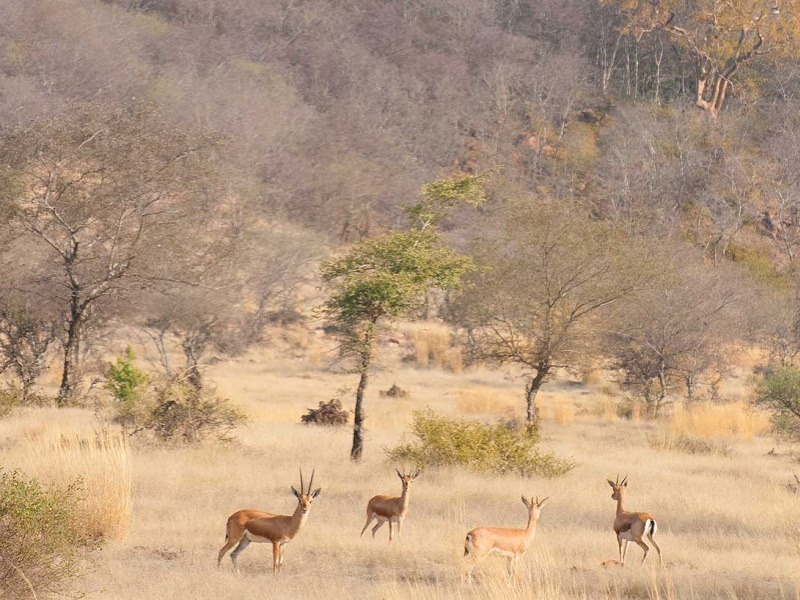
Madhav National Park is named after one of the kings of Scindia dynasty- MadhoRaoScindia. This park is rich in biodiversity. MadhavSagarlake and SakhyaSagar lake are the two important biodiversity support systems in the park.
- Established on: 1958
- Best time to visit: October to March
- Famous for:Dhawda, Tiger, Common langur
- Location: Madhya Pradesh
How to Reach there: View Direction
51. Nokrekh National Park
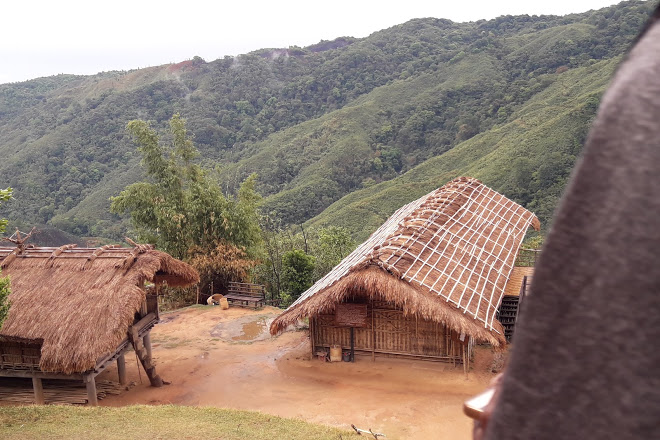
Famous for the population of red panda, Nokrekh National Park has always generated curiosity in the minds of people. Simsang River game reserve, the NokrekPeak and Ronbang Dare Waterfalls fall under the attractions of this park. The Garo Hills, including the Siju Cave houses many natural limestone caves. The whole cave is covered in water.
- Declared as a national park on: 1986 but the final notification was issued in 1997
- Best time to visit:October to May
- Famous for: Red Panda, Asian Elephant, Marbled Cat
- Location: Meghalaya
How to Reach there: View Direction
52. Pampadum Shola National Park

Pampadum Shola National Park is the smallest national park in Kerala. It unfolds the enchanting beauty of nature. The park’s richness in uncontaminated humus has been an interest of recent studies.
- Declared as a National Parkon: 2003
- Best time to visit: April to September
- Famous for: Medicinal plants and varieties of Eucalyptus
- Location: Kerala
How to Reach there: View Direction
53. Phawngpui Blue Mountain National Park
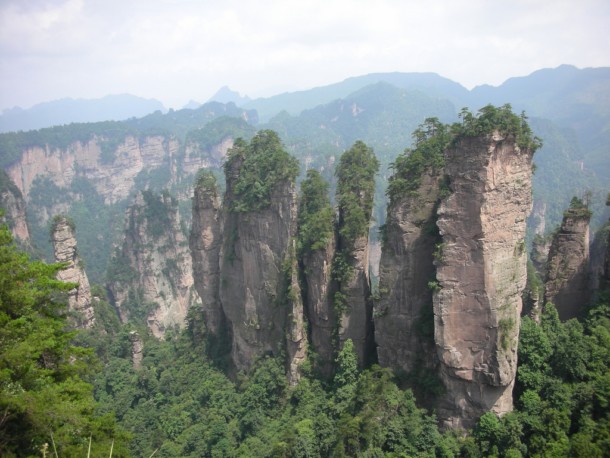
Also known as Phawngpui National Park, houses many wildlife animals like Slow Loris, Tiger, Leopard, Stump-tailed macaque and many more. It is well-known for its exotic species of flora and fauna, and the area is strictly reserved for the betterment of wildlife.
- Declared as a National park on: 1992
- Best time to visit: November to February
- Famous for: Orchids and Rhododendrons
- Location: Mizoram
How to Reach there: View Direction
54. Tadoba National Park

Tadoba National Park is the oldest and the largest national park in Maharashtra. The park is named after the Tribal god-‘Tadoba’. It is said that Taru, the village chief was killed in a mythical encounter with a tiger, and then a shrine was built there in his memory. Later on, it was developed into a national park.
- Established on: 1955
- Best time to visit:April to May
- Famous for: SambarTadoba, Indian Paradise Flycatcher
- Location: Maharashtra
How to Reach there: View Direction
55. Valley of Flowers
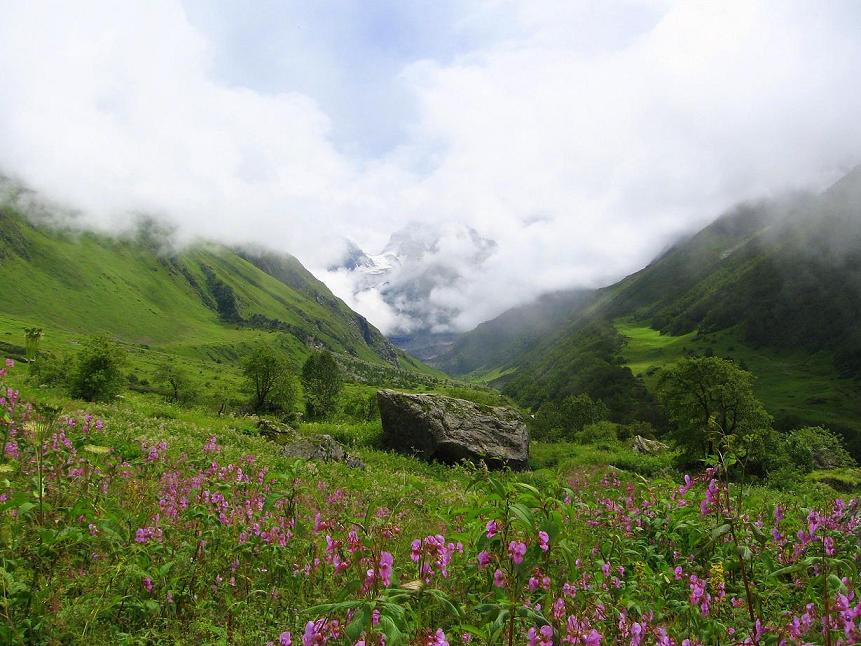
Known for the meadows of a variety of flora and endemic alpine flowers, Valley of flowers national park, is a high-altitude Himalayan valley, that has been recognized internationally and referred in Hindu religion.
Three British mountaineers were on their way back from an expedition, and they lost their way in between, and happened upon this valley, which was full of flowers. This is how, the valley got its name.
- Declared as a National Park on: 1982
- Best time to visit: Julyto mid-August
- Famous for: Asiatic black bear, Snow leopard
- Location:Uttrakhand
How to Reach there: View Direction
Conclusion
National Parks in India clutch a special place in the heart of wildlife explorers. However, wildlife conservation and beautification of National Parks in India are essential to the main real charm. Besides, it provides an eye-soothing view to the travelers and a fun-filled family trip
Recent Blogs
Our Educational Services
Popular Blogs
Subscribe

SUBSCRIBE TO OUR NEWSLETTER
Sign Up and Recieve the Latest News
Don’t Worry, We Don’t SpamExplore Our Extensive Researched Educational App Directory
Visit Now














